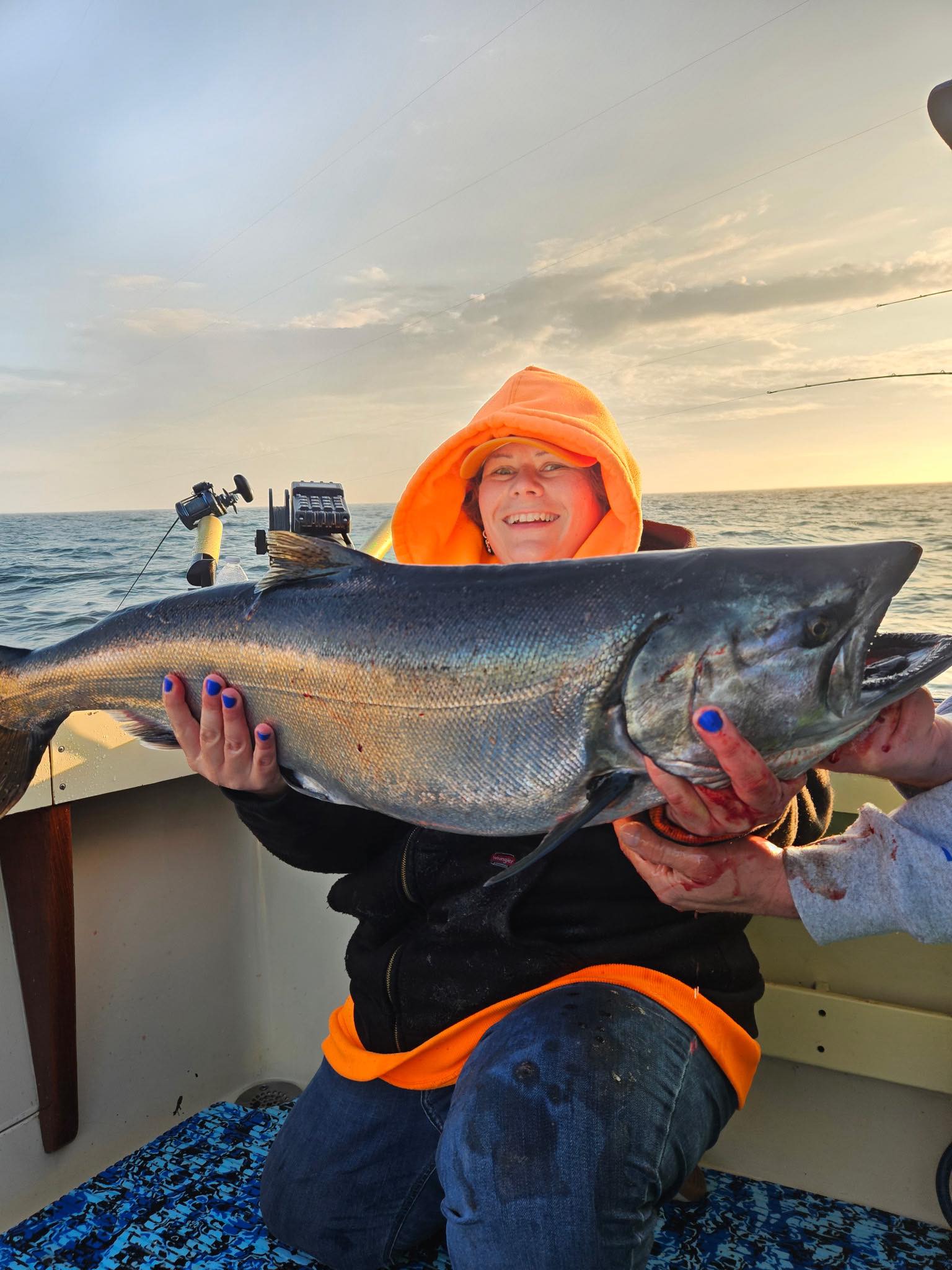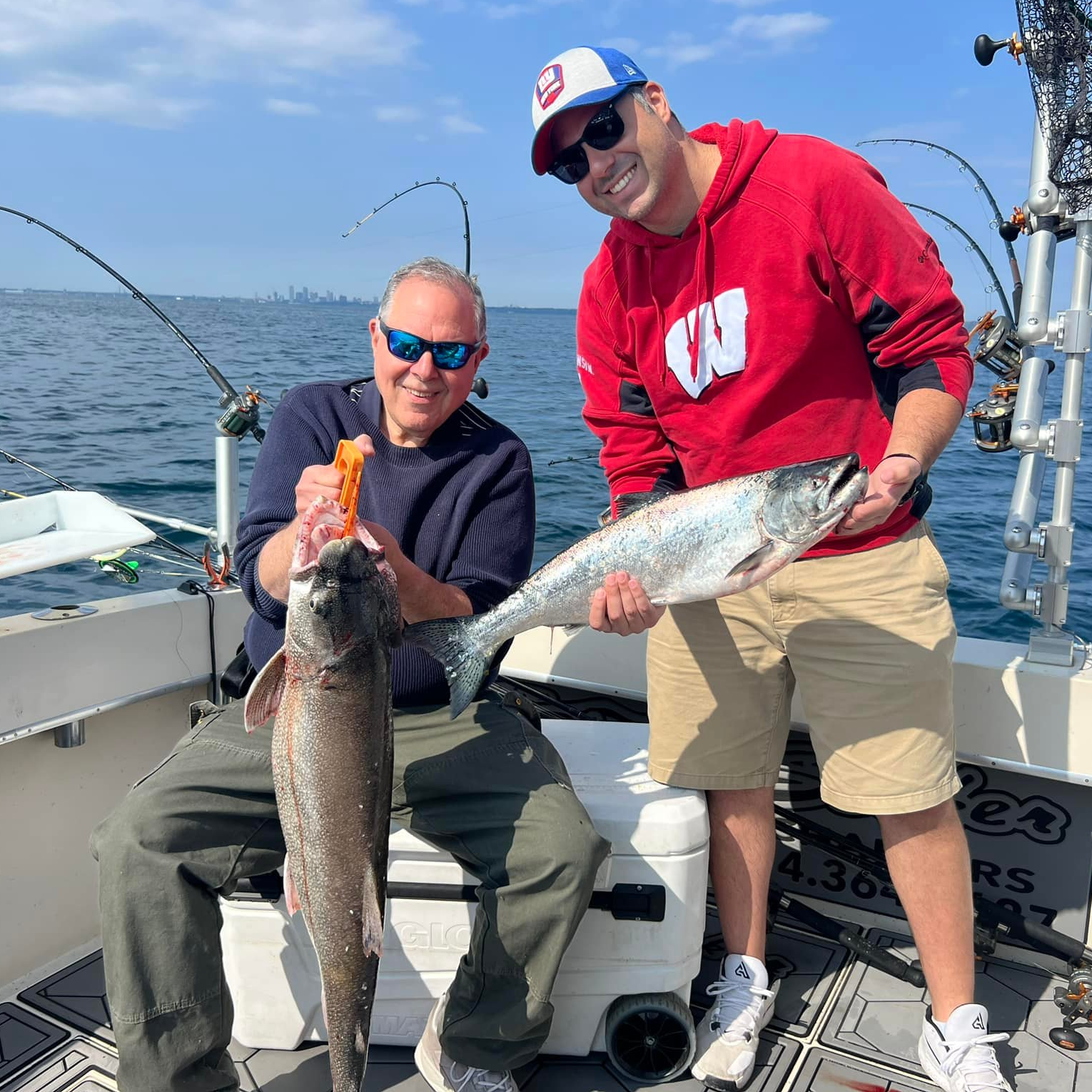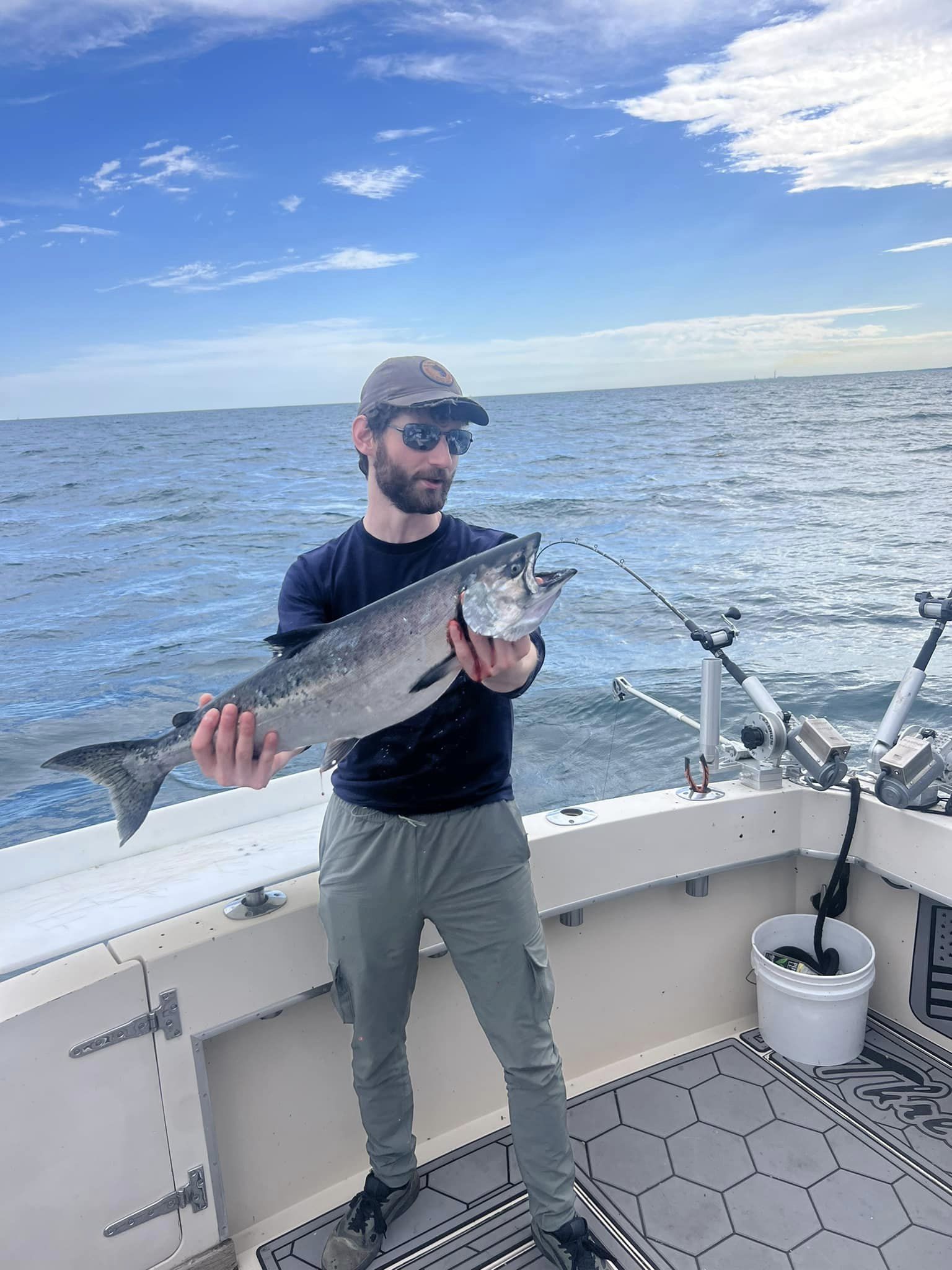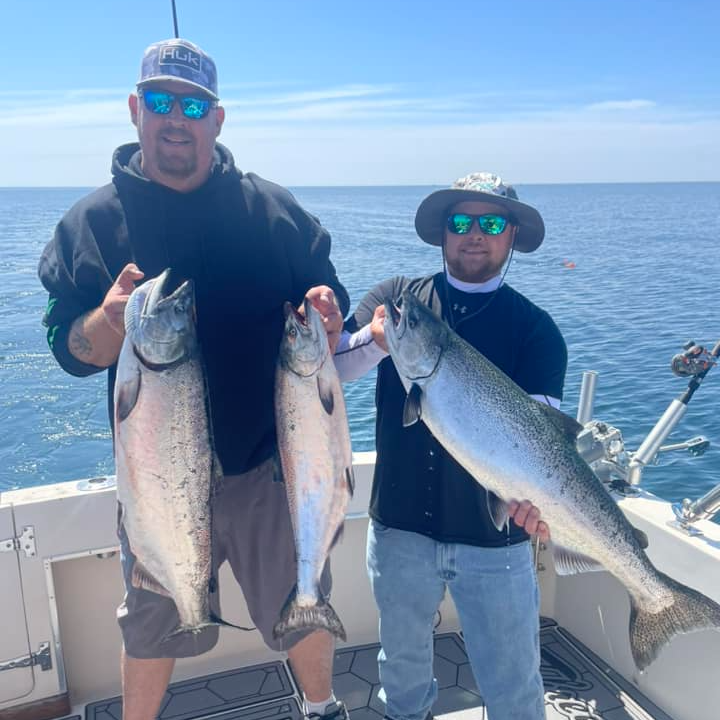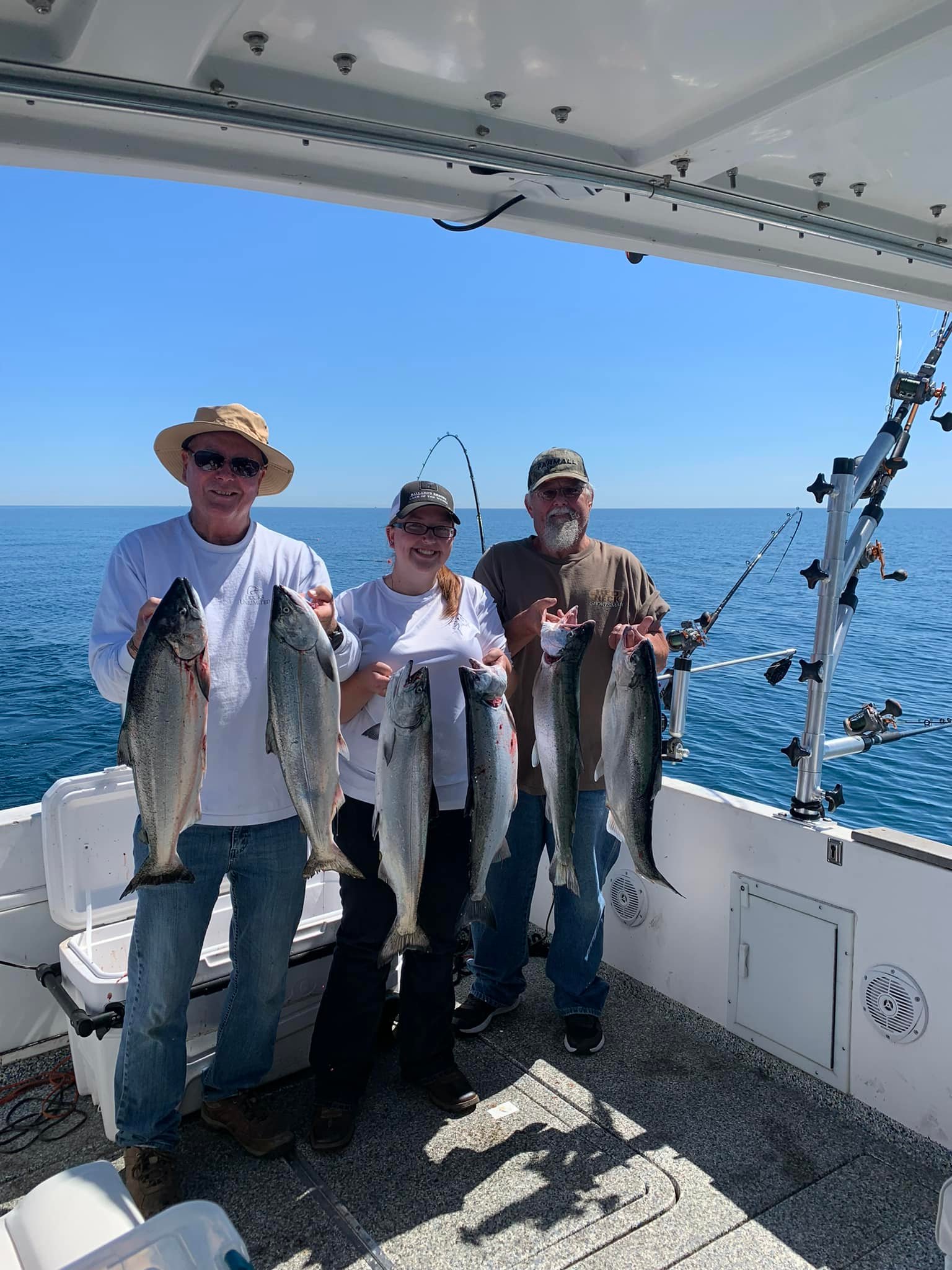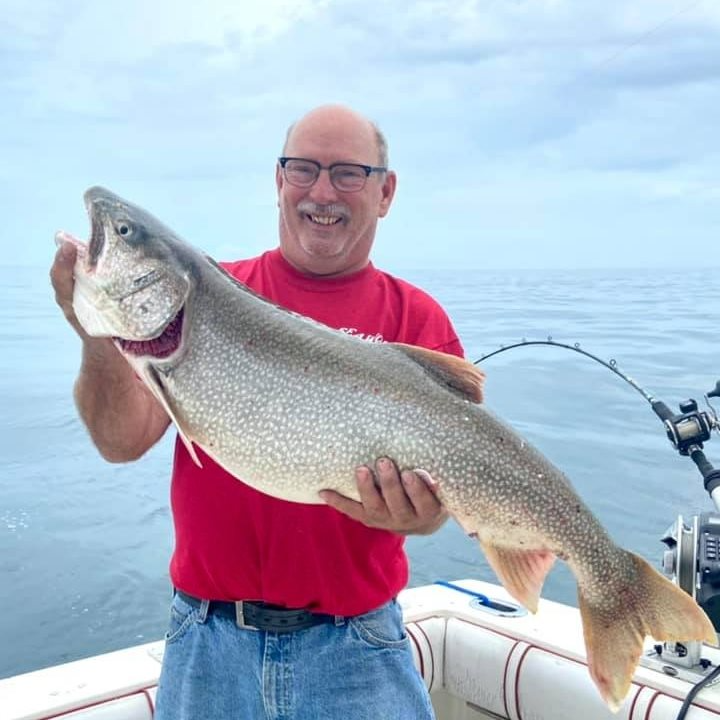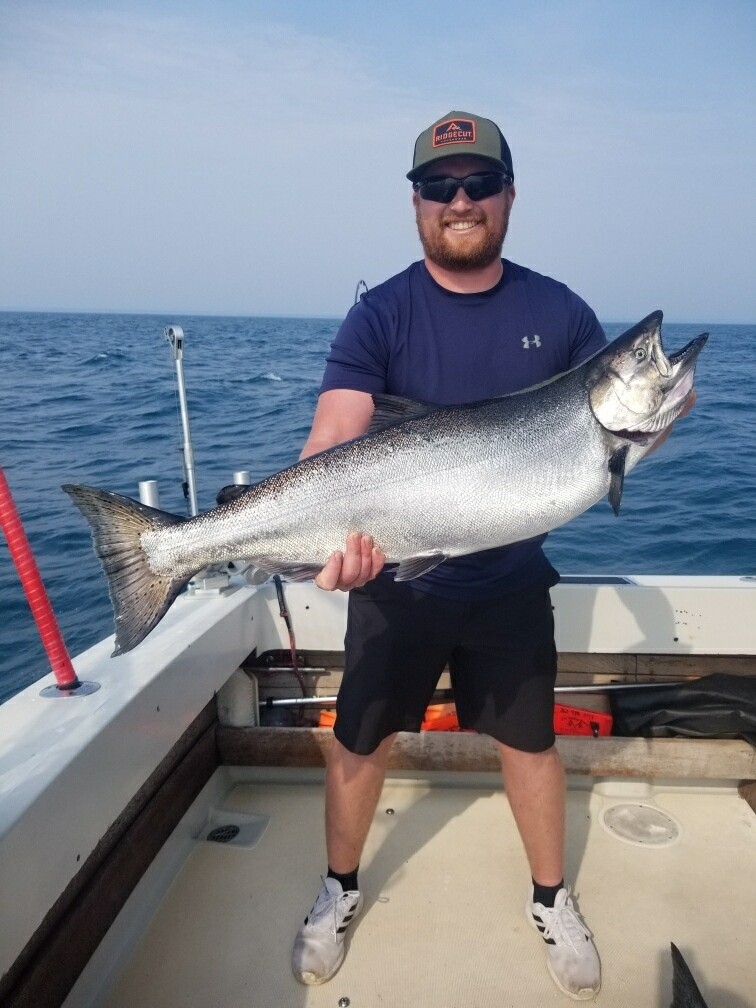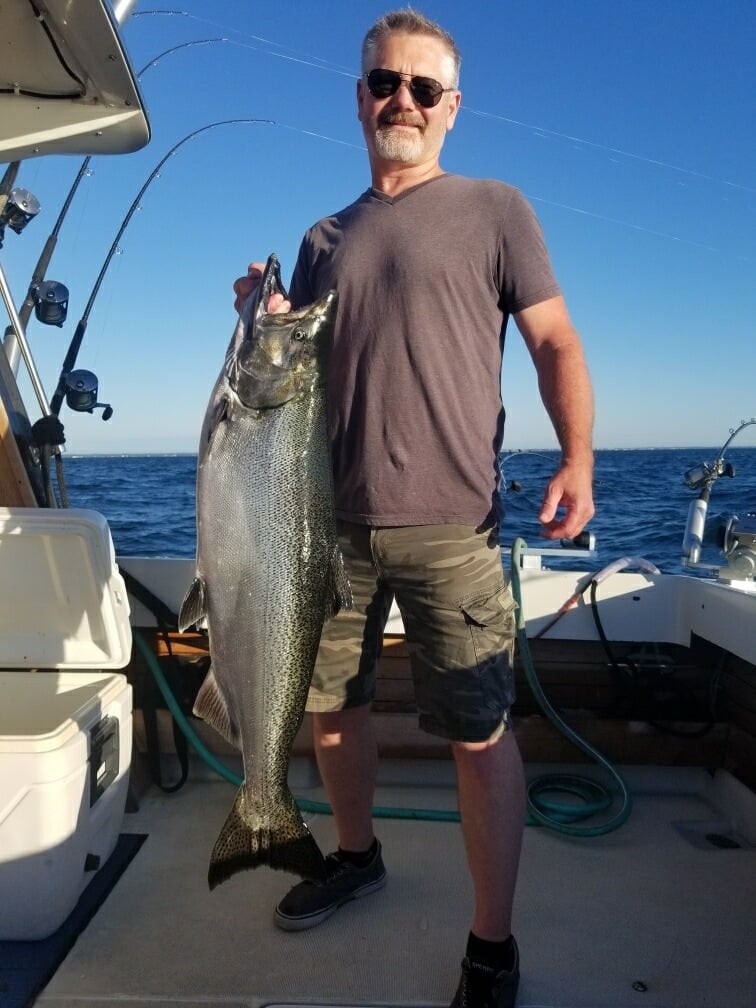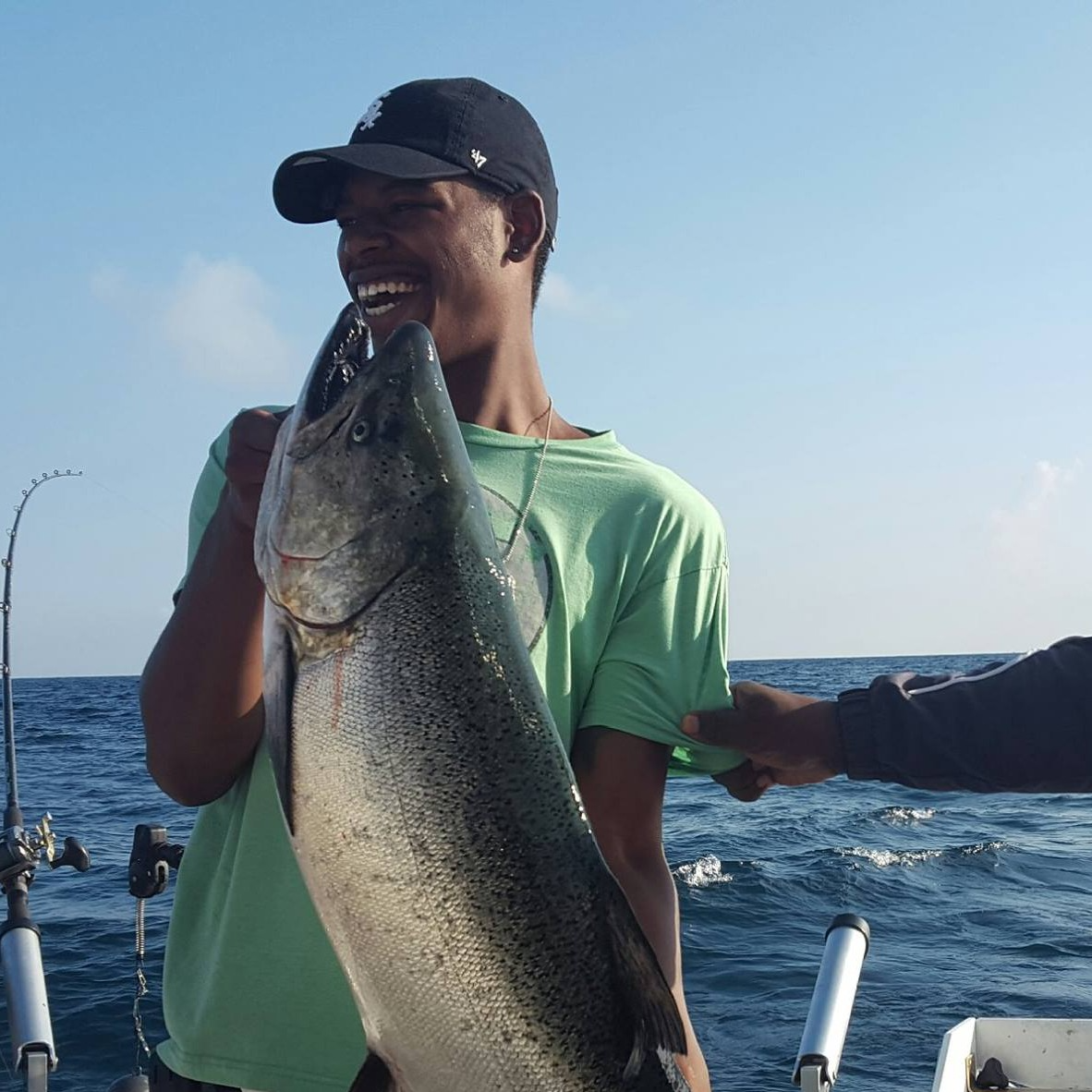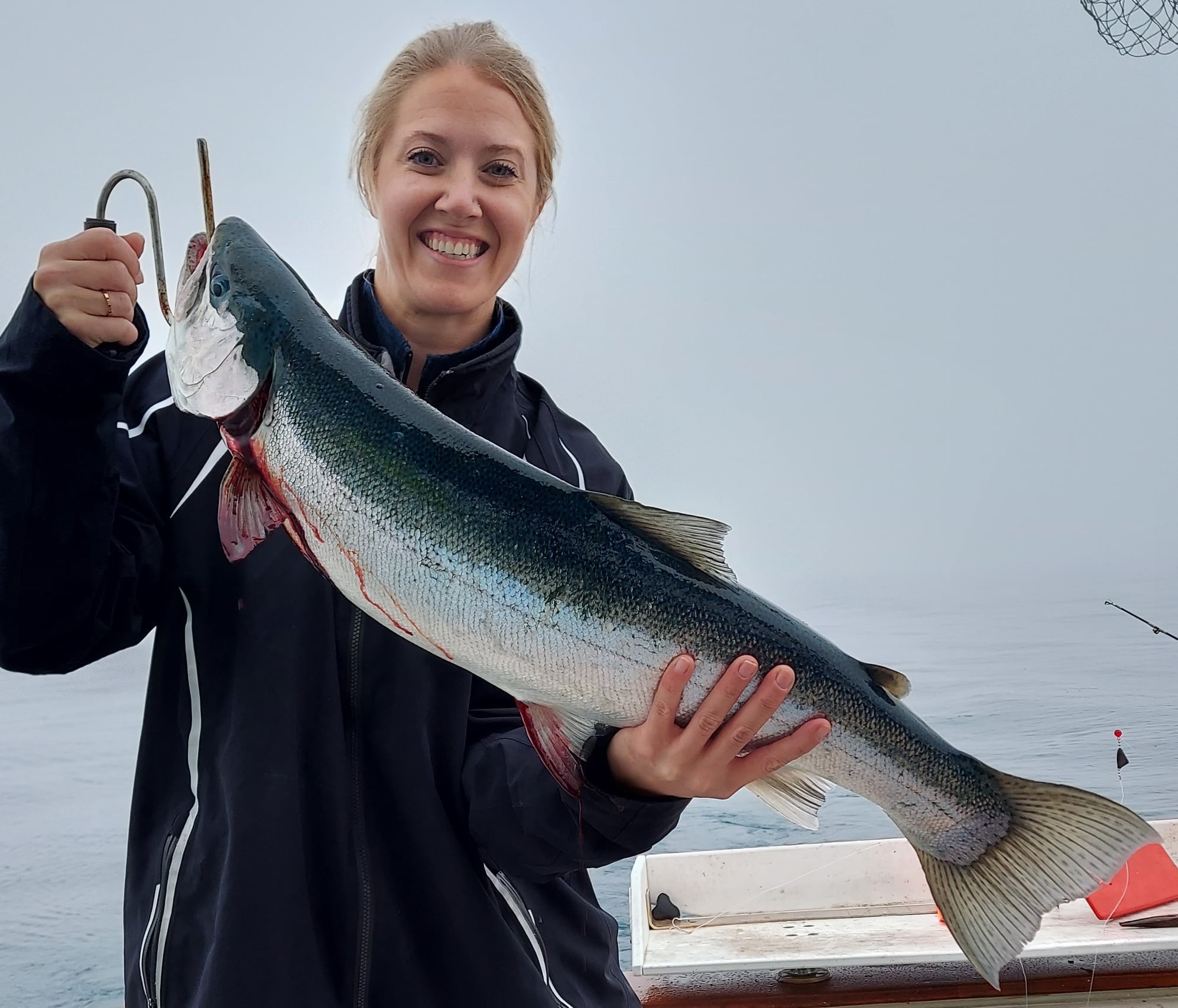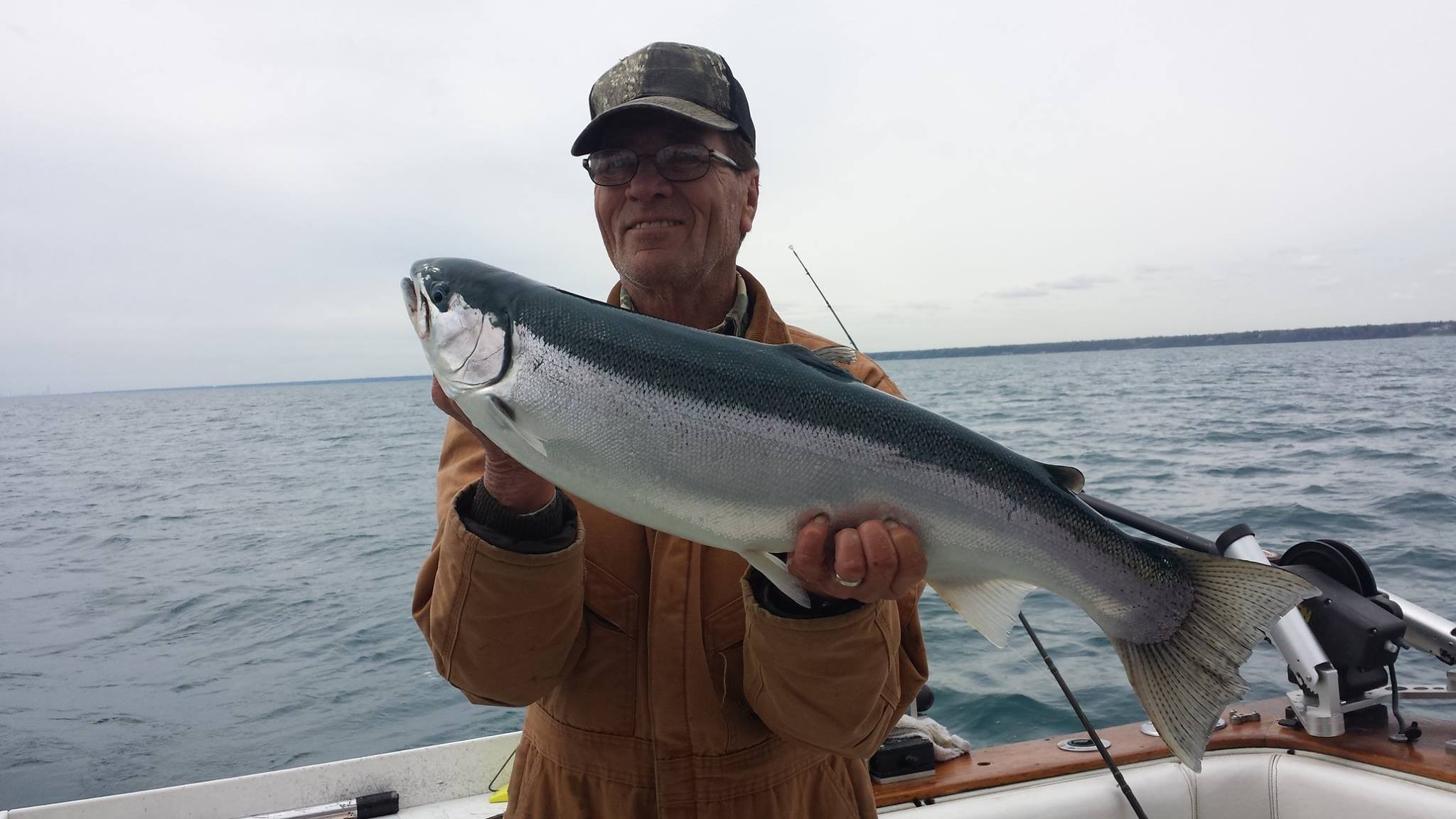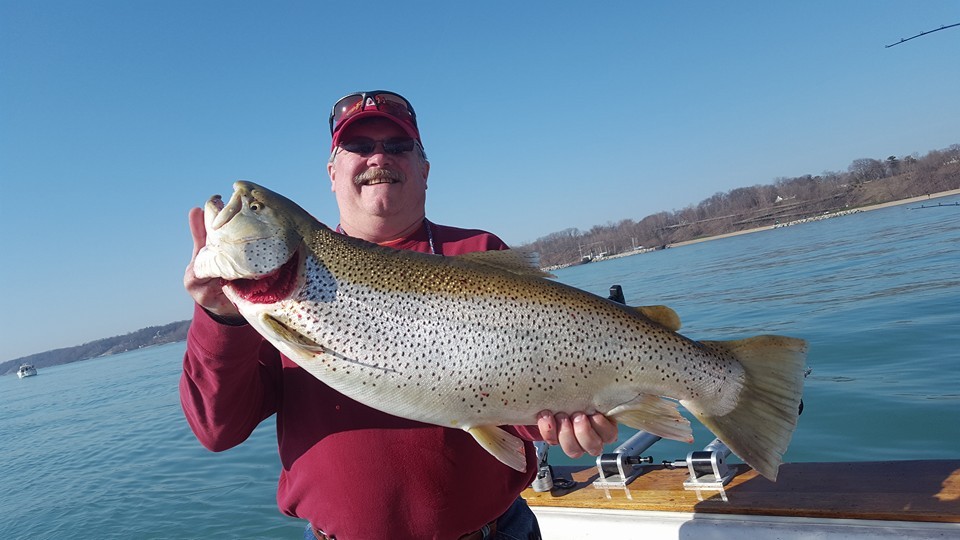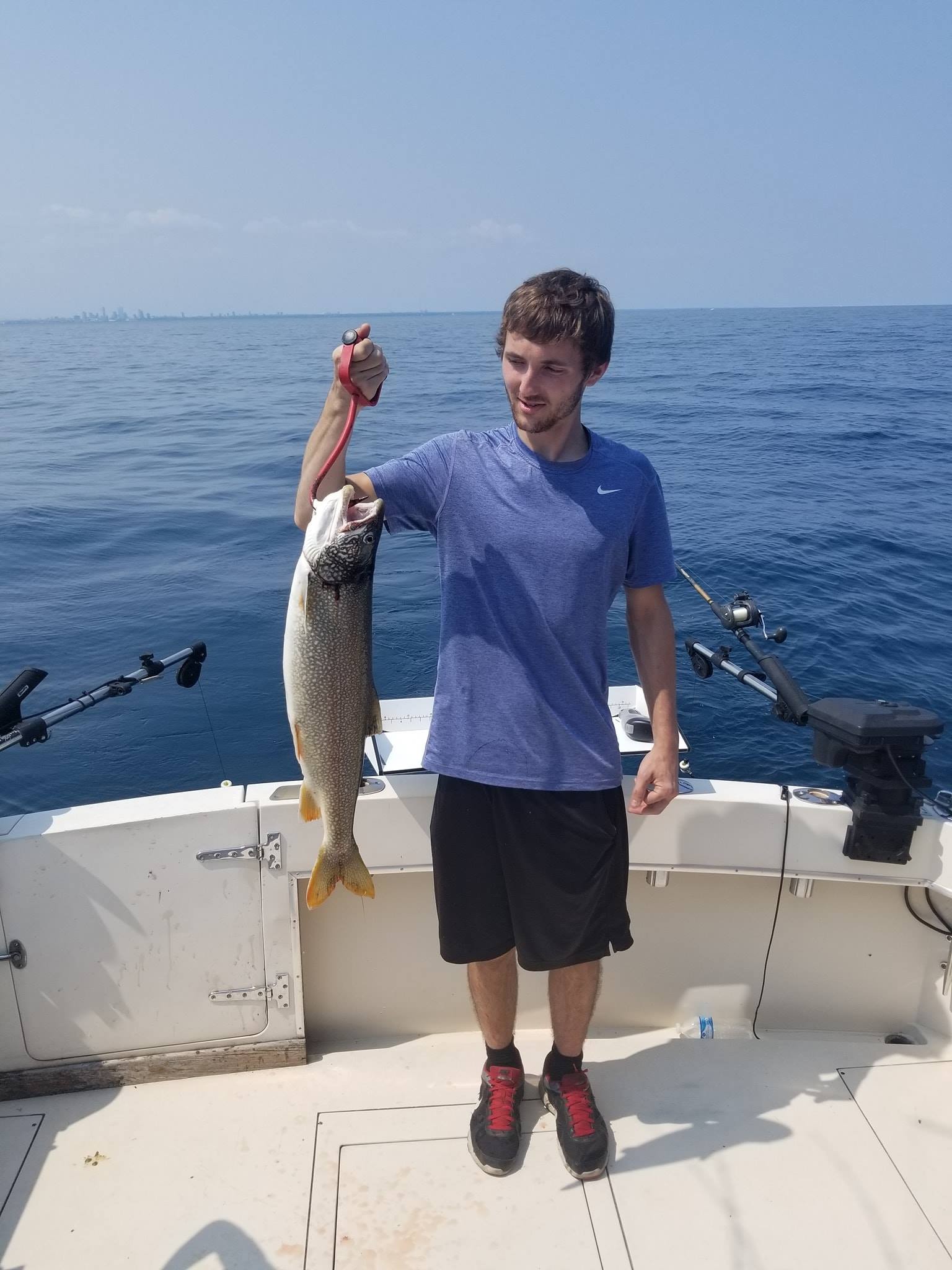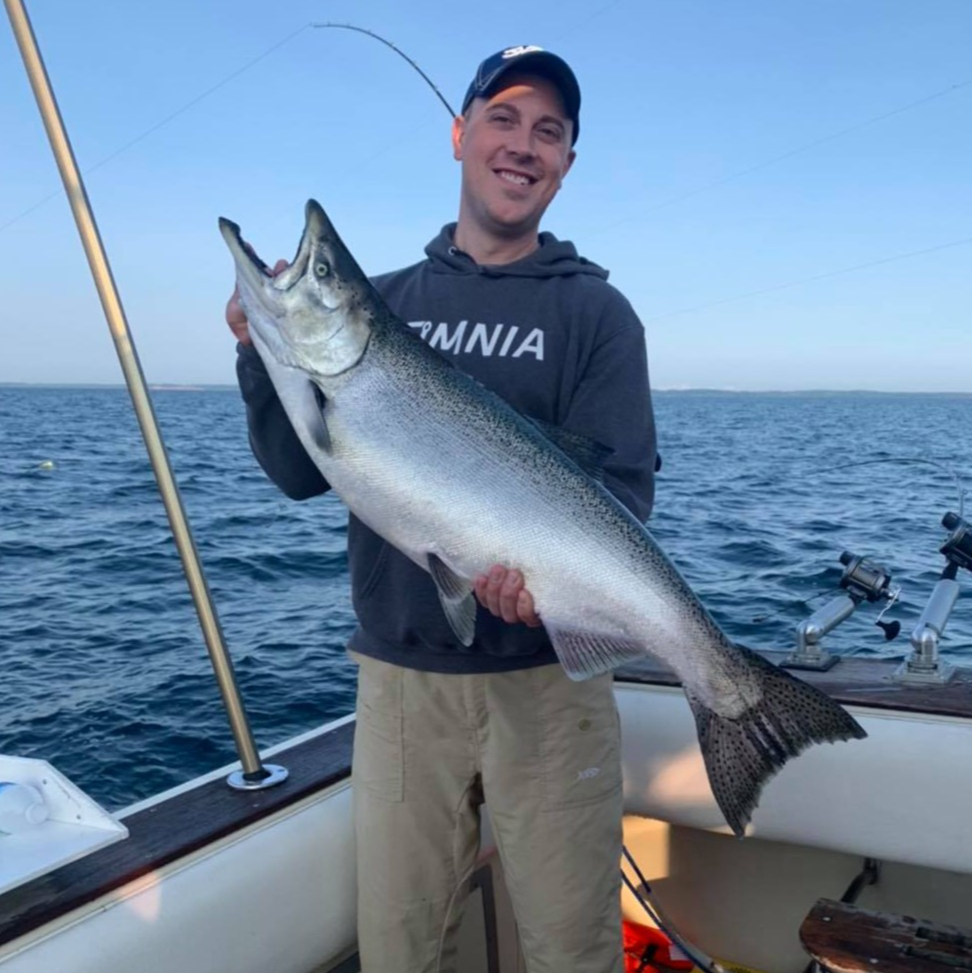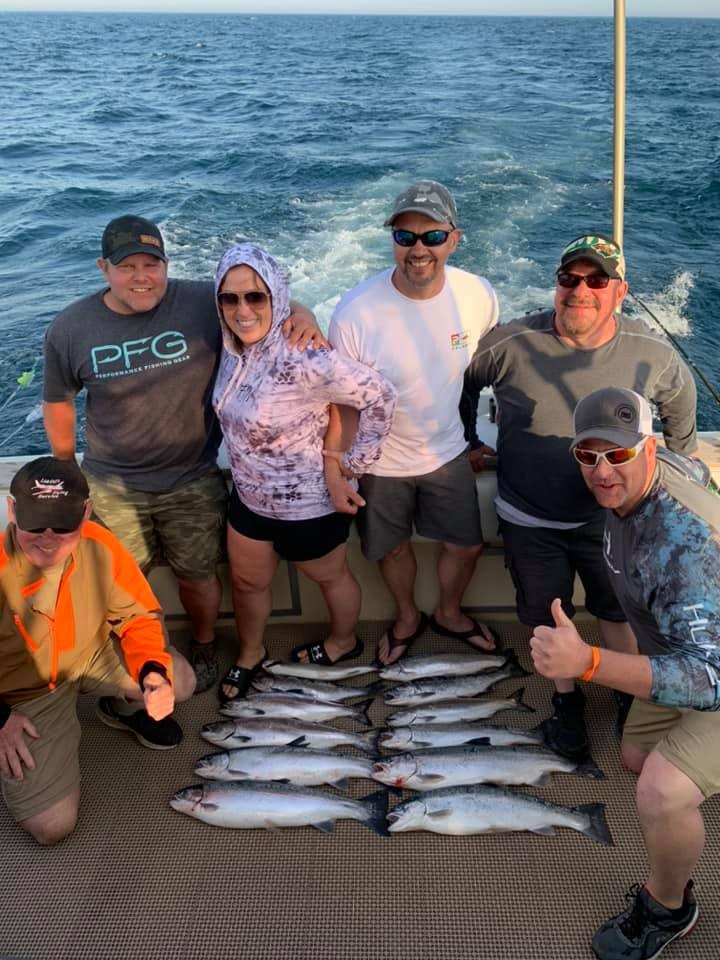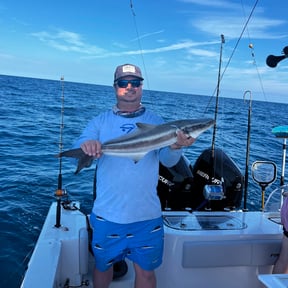Salmon/Trout Trips
Milwaukee Inshore Fishing Charter
Salmon & Trout On Lake Michigan
Lake Michigan Sport Fishing Charter
River, Lake Fishing in Eagle River
1/2 Day Musky Fishing
Kenosha Salmon Hookfest
Weekend Salmon Run
Weekday Salmon Run
Milwaukee Sportfish Trip
Cohos, Kings, And Lake Trout Trip
We started Captain Experiences to make it easy to book fishing and hunting guides around the world. With over 2,000 Damn Good Guides, our platform makes finding and booking a trip seamless. Head here to check out our trips.
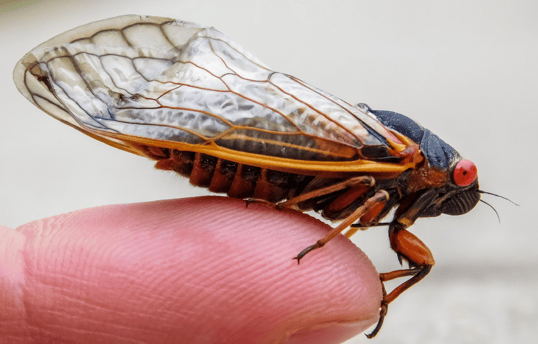
With temperatures heating back up, the typical sights, smells, and sounds of spring are returning once again. But this year, one familiar sound—the buzz of cicadas—may be more prominent than usual. This year marks a rare convergence as two significant cicada broods—the 13-year Brood XIX and the 17-year Brood XIII—emerge simultaneously, an event occurring only once every 221 years. These broods are examples of periodical cicadas, which synchronize their development and emerge in unison every 13 or 17 years, contrasting with annual cicadas that emerge yearly. And given the scope of this year’s periodical broods—Brood XIX is the largest by geographic reach and Brood XIII is the largest in size—2024 will bring a once-in-a-lifetime level of cicada activity to the U.S.
Despite the anticipation surrounding this event, there's little cause for concern. Cicadas are benign creatures, posing minimal threat as they neither bite nor sting, and they largely abstain from consuming garden plants or crops. On the contrary, cicadas provide a host of ecological benefits by aerating soil and serving as a crucial food source for various animals. As Jason Jeffrey, a local Tennessee fishing guide, aptly describes, “it’s about 3–4 weeks of non-stop action [and] an eruption of calories from nature. Everything gets fat on these high-calorie protein snacks. Squirrels and cats will battle for their share of the loot, [while] birds will eat a once-in-a-lifetime feast that can make an entire species thrive and pass genes.”
Interestingly, cicada hatches also create a boon for fishing enthusiasts. The large number of cicadas that emerge during hatches provide excellent feeding opportunities for fish, attracting them in large numbers to the water's surface. This abundance of prey leads to exceptional fishing, with anglers often enjoying heightened catch rates and larger fish sizes during cicada hatches. “When these bugs land on the water, all of the fish eat them. It's the best fly fishing in freshwater. Period,” says Jason. “It transforms a seemingly normal fishery to something magic. I've got patterns ready and hooks sharpened, all I need is anglers to haul these fish in."
PLAN YOUR NEXT ADVENTURE
75 different Tennessee counties are expected to see cicadas this year—13 of which will see the rare Brood XIX, presenting a unique opportunity for a thrilling fishing experience in the area. Take a look at some of our highly-rated Tennessee fishing guides, and plan your next adventure today.
How Loud Are Cicadas?
The noise level achieved by cicadas exchanging mating calls is comparable to a lawnmower.
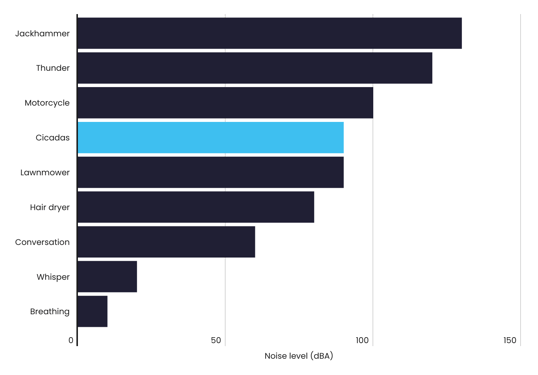
Source: Captain Experiences analysis of NIH data
Of course, one of the most widely recognized cicada characteristics is their sound. Male cicadas use membranes in their abdomen known as tymbals to generate distinct mating calls for females, and other features of cicadas’ anatomy serve to amplify the sound. As a result, cicadas can produce their mating calls at a noise level of 90 dBA. This volume is greater than that produced by hair dryers, comparable to that of lawnmowers, and on par with what’s considered damaging to human hearing given long periods of exposure.
GONE FISHIN'
Wisconsin will feel the buzz this year, which is a good thing if you like to fish. We currently offer 15 different fishing experiences in the Badger State, where Brood XIII is expected for the first time since 2007. Don’t miss this opportunity, and book a trip now with one of our top-notch Wisconsin fishing guides.
Where Are Cicadas Located?
While annual cicadas are widespread throughout the Lower 48, periodical cicadas are concentrated among eastern states.

Source: Captain Experiences analysis of U.S. Forest Service data
Not every part of the country experiences the impacts of cicadas equally. Annual cicadas are widespread throughout the continental U.S., but periodical cicadas are concentrated only in certain regions of the country. The Northeast, Midwest, and especially Southeast tend to have a higher concentration of cicadas because of how the periodical broods and annual broods intersect. In contrast, the western U.S., New England, and Florida only encounter annual cicadas.
TRENDING ON CAPTAIN EXPERIENCES
If there was ever a time to book your Illinois fishing trip, this is it. The rare cicada double brood event that occurs only once every 221 years is happening in Illinois, and there can’t be a better way to enjoy it than on a lake or a river with one of our expert Illinois fishing guides.
Where Will the 2024 Double Brood Occur?
A total of 17 states and 321 counties are expected to experience either Brood XIII or Brood XIX.
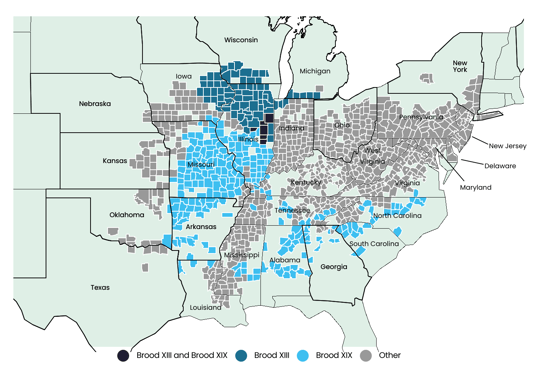
Source: Captain Experiences analysis of U.S. Forest Service data
And though the co-emergence of Brood XIII and XIX will increase the overall activity of cicadas in the U.S. this year, few locations will be impacted by both broods simultaneously. Experts anticipate that most of the counties that will be exposed to Brood XIII are found in Illinois, Iowa, and Wisconsin, while Missouri, Illinois, Arkansas, and several other southeastern states will see the greatest impacts of Brood XIX’s emergence. Only six counties nationwide—all within the state of Illinois—will see both broods emerge.
Below is a complete breakdown of all states affected by the 2024 cicada double brood. The analysis was conducted by Captain Experiences using data from the U.S. Forest Service. For more information, see the methodology section below.
Methodology
The data used in this study is from the U.S. Forest Service Geodata Clearinghouse. To determine the states that will be most impacted by the 2024 cicada double brood, researchers calculated the percentage of counties in which either Brood XIII or Brood XIX is expected to emerge. Researchers also calculated percentages and totals for the individual broods and their overlap, where applicable.
References
- University of Connecticut, Biodiversity Research Collections. (2024). The 2024 Periodical Cicada Emergence. Retrieved on March 25, 2024 from Cicadas.
- United States Environmental Protection Agency. (2024). Cicadas. Retrieved on March 25, 2024 from EPA.
- Freund, Jason G. The Scientific Fly Angler. (2024, March 8). Cicada Hatch 2024: A Guide to Biology, Finding Them, and Fly Patterns for Catching Fish. Retrieved on March 25, 2024 from Scientific Fly Angler.
- NIOSH Noise and Bio-Acoustics Team. Center for Disease Control and Prevention. (2021, July 20). Noise Myths Debunked – Fact and Fiction Behind all the Cicada Buzz. Retrieved on March 25, 2024 from CDC.
- United States Department of Agriculture, Forest Service. (2024). FSGeodata Clearinghouse. Retrieved on March 25, 2024 from USDA.
Jake Lane
Updated on February 19, 2025

August 21, 2023

October 26, 2020

May 13, 2024
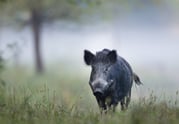
November 7, 2023
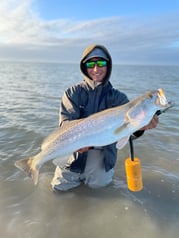
January 19, 2021
Related Articles
August 17, 2023
July 9, 2024
June 12, 2024
Featured Locations
- Fishing Charters Near Me
- Austin Fishing Guides
- Biloxi Fishing Charters
- Bradenton Fishing Charters
- Cabo San Lucas Fishing Charters
- Cancun Fishing Charters
- Cape Coral Fishing Charters
- Charleston Fishing Charters
- Clearwater Fishing Charters
- Corpus Christi Fishing Charters
- Crystal River Fishing Charters
- Dauphin Island Fishing Charters
- Daytona Beach Fishing Charters
- Destin Fishing Charters
- Fort Lauderdale Fishing Charters
- Fort Myers Fishing Charters
- Fort Walton Beach Fishing Charters
- Galveston Fishing Charters
- Gulf Shores Fishing Charters
- Hatteras Fishing Charters
- Hilton Head Fishing Charters
- Islamorada Fishing Charters
- Jacksonville Fishing Charters
- Jupiter Fishing Charters
- Key Largo Fishing Charters
- Key West Fishing Charters
- Kona Fishing Charters
- Lakeside Marblehead Fishing Charters
- Marathon Fishing Charters
- Marco Island Fishing Charters
- Miami Fishing Charters
- Montauk Fishing Charters
- Morehead City Fishing Charters
- Naples Fishing Charters
- New Orleans Fishing Charters
- New Smyrna Beach Fishing Charters
- Ocean City Fishing Charters
- Orange Beach Fishing Charters
- Panama City Beach Fishing Charters
- Pensacola Fishing Charters
- Pompano Beach Fishing Charters
- Port Aransas Fishing Charters
- Port Orange Fishing Charters
- Rockport Fishing Charters
- San Diego Fishing Charters
- San Juan Fishing Charters
- Sarasota Fishing Charters
- South Padre Island Fishing Charters
- St. Augustine Fishing Charters
- St. Petersburg Fishing Charters
- Tampa Fishing Charters
- Tarpon Springs Fishing Charters
- Venice Fishing Charters
- Virginia Beach Fishing Charters
- West Palm Beach Fishing Charters
- Wilmington Fishing Charters
- Wrightsville Beach Fishing Charters
